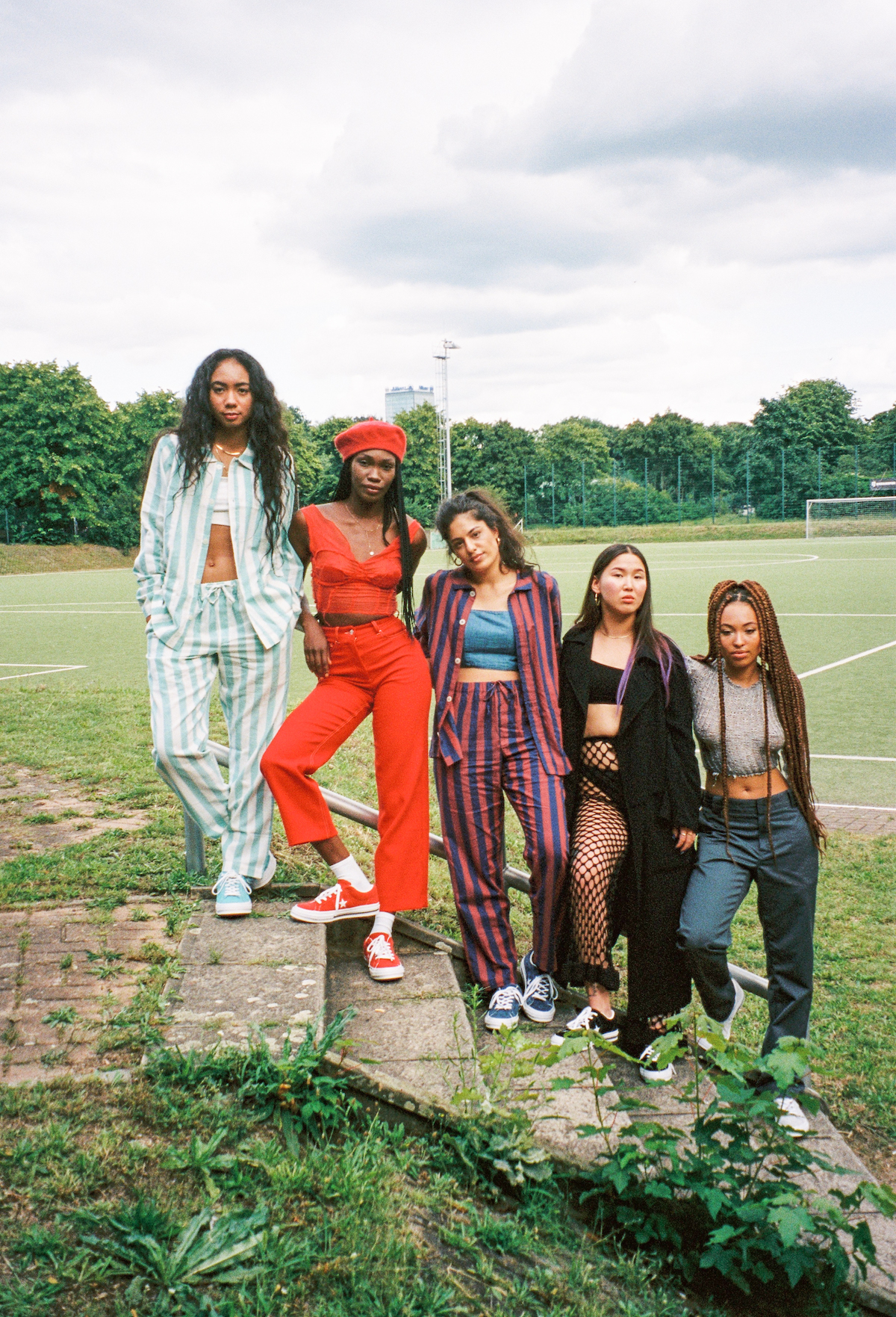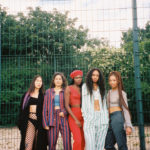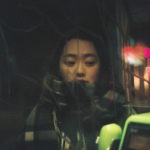Undoubtedly, diversity comes in all different forms, each of which are salient topics not to…
#theWOCproject
Re-defining Beauty with Nomin and Jade20 September 2018
It should be our goal as a society to work towards breaking down the barriers established by conventional beauty standards.
When we choose to throw away the singular westernized standard of beauty that has reigned supreme for centuries, it becomes apparent that beauty cannot and should not be defined by one eye color, hair color, eye shape, nose shape, lip size, or body shape. Spreading the message of the importance of inclusive beauty is integral to YEOJA Mag, which is why our very first article introduced you to five incredible women who epitomise how diverse beauty actually is and who represent the kind of beauty we want to see popping up on the covers of magazines and showing up in our Instagram feeds. Today, we are finally rolling out our first set of interviews* with two these incredible women in a celebration of non-western beauty and female POC appreciation.
*Our interviews with Jade and Nomin were conducted a year ago but we have since caught up with the girls and have updated information so that it is relevant as of this article’s publishing date.
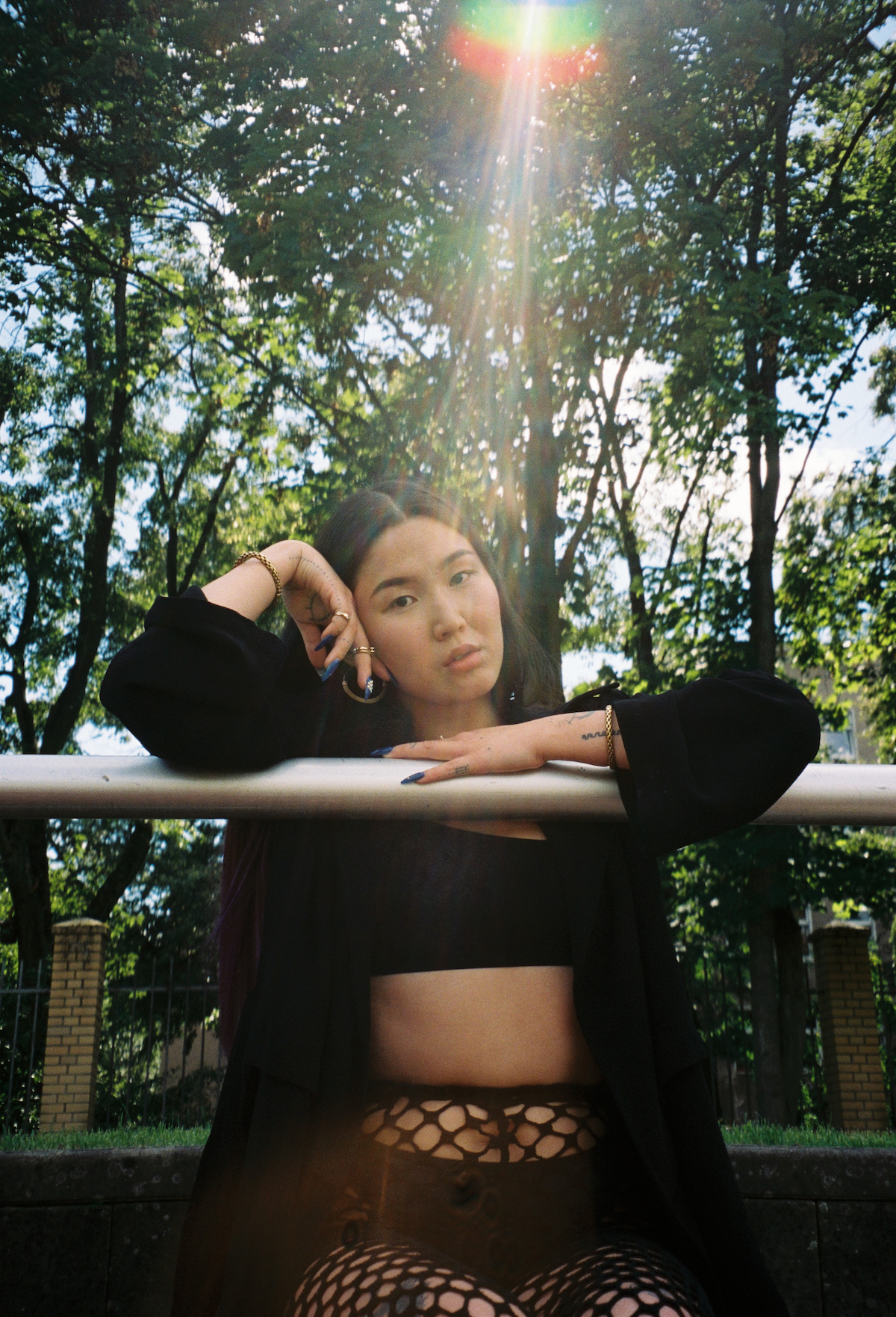
Nomin:
My name is Nomin, Sun in Aries. I’m Mongolian and I was raised in Berlin. I have been studying at the Gerrit Rietveld Academie in Amsterdam since 2016. Before that, I studied fashion design in Berlin. In my 25 years of life, I’ve only ever really left Berlin for the purpose of traveling, especially and mostly to Mongolia. Looking back on it, these travels have been fundamentally important [to who I am]. I am also a lash stylist, love bedazzling nails, customise clothes and do small-scale hand-poke tattoos. I have a great affinity for detailed and delicate things that require time. Furthermore, it facilitates meeting people from many different backgrounds and there is something very special about that. And yes of course it also helps me pay my bills, cos #artstudentlife.
Where were you born, what age did you move to Berlin, and why?
Nomin: I was born further south of Berlin and moved to Berlin when I was probably around 3 months old. When my mama came to Germany, she was at a German language school. After that, we came to Berlin and she started studying here.
Have your trips to Mongolia been trips your family mostly insisted you go on, or have you always wanted to go? How have these trips shaped your identity?
Nomin: I have travelled to other places, but Mongolia was always the place I wanted to go to first and foremost and it seemed quite natural to spend my summer breaks there. I never went because my family insisted upon it. Looking back on my times there, I can definitely say these trips have been fundamentally important in so many ways which goes even further than just shaping my identity. I’ve written an essay around this topic, gathering my own memories and recollections and how it affects my practice – ‘ My Mongolian Wanderings ‘, which you or anyone interested is very welcome to read. (I have to mention at this point that it is from 2016. Since then, further in-depth discoveries were made on the subject matter, which may very well become a sequel to this first essay.)
My travels to the motherland from a young age gave me a feeling of naturally developing into who I am now, touching upon and relating to two different worlds. In Mongolia, the communal life is so present and strong whereas in Berlin I enjoy/ed the intimacy of a small family – my mother and my brother, so to speak. On top of that, regardless of age [in Mongolia] you become an important part of the community, fulfilling certain responsibilities and tasks. What these visits gave me in terms of skills, ambition, mentality and spirituality is complicated to sum up.
I am currently exploring my Mongolian heritage through my studies, equally employing past experiences in and with Mongolia, through researching Mongolian history, art, and spirituality – which makes me feel like a visual archaeologist. Through this research, I have deviated from Western knowledge and perspectives.
As a woman of color, being both proud of who you are and identifying with your ethnicity often becomes the only identifying modifier by which the white majority see women of color. Oftentimes pride in oneself and one’s heritage is interpreted by the white majority as confirmation that women of color are asking to be first and foremost identified as women of color 100% of the time every time. Women of color are also often expected to speak for and represent our entire race – something the white majority does not encounter. Would you agree with this?
Nomin: Definitely. I believe that the whole subject of identity and belonging are such individual journeys and that we must establish the idea of identity as one that allows for a more fluid understanding and perception. This is why I find it even more bizarre when a person thinks it necessary to put you in a box or believe they have the right/are entitled to tell you what you are, to read you, or to apply their stereotypes and prejudices upon you. For those with a migrant/mixed race background, it is an especially precious and intimate journey to really find your identity and ‘a place’ of belonging. Thus we need to cultivate and embrace this journey and not try to dictate it ourselves.
What I come across a lot these days in regards to my heritage and ethnicity is either a sense of entitlement when others try to explain my culture to me, or the expectation that others can just sit back and wait for me to give them a whole educational lesson on Mongolian culture. Of course I appreciate the interest, or people’s fascination with my culture, but what bothers me the most is the invisible, emotional labour WOC are constantly asked to deal with, but haven’t actually actively signed up for.
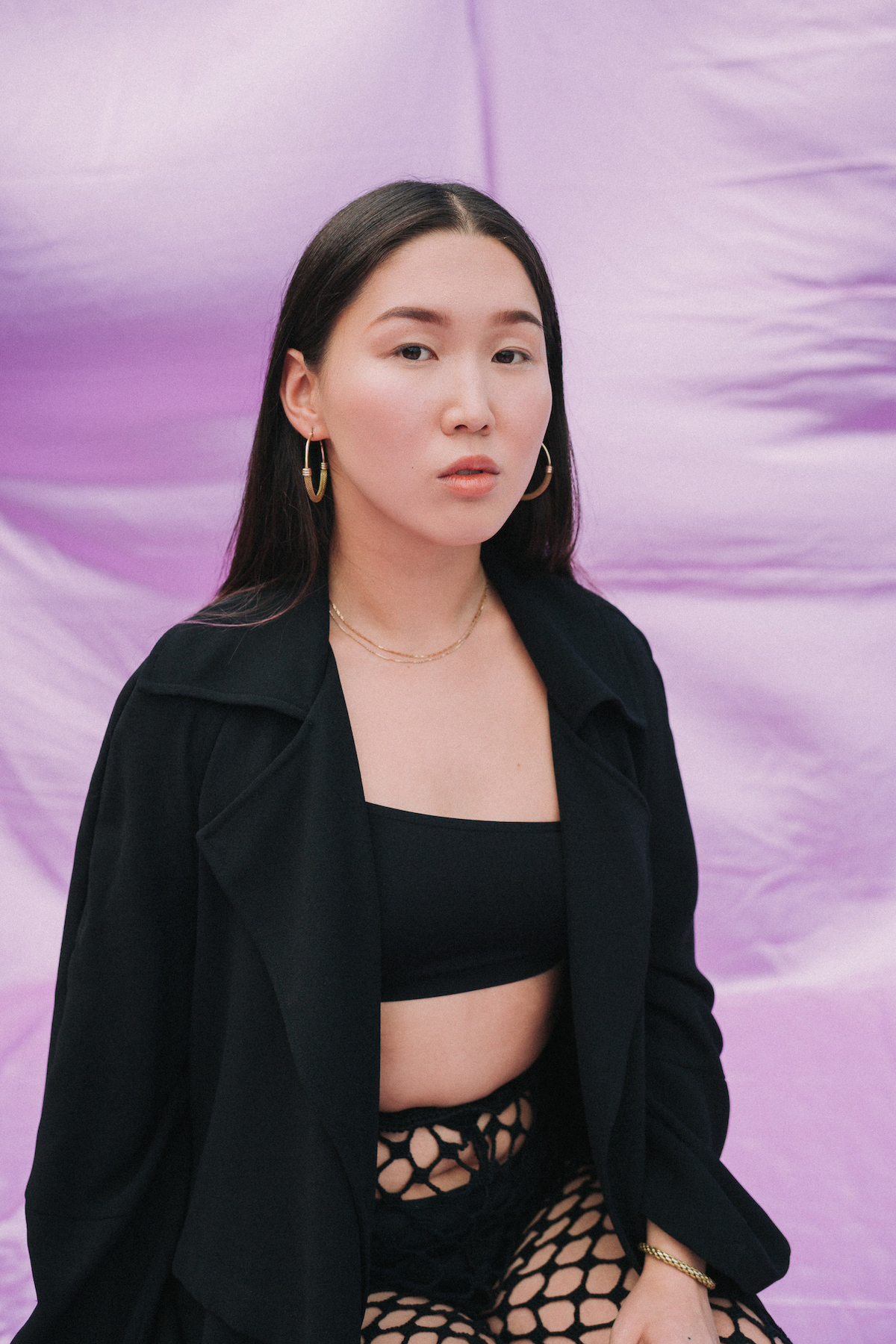
Culture and ethnicity are not always the same thing. This is true for people of color who are adopted into families from a different ethnicity as well as those who are of mixed-race, or grew up in a different country to that of their heritage. People who fall into this category do not traditionally fit a specific profile or demographic. As a Mongolian woman who was born and raised in Berlin, what has your personal experience been on this front?
Nomin: Totally, culture and ethnicity are certainly not always the same thing. What I find astonishing is that ‘ethnic’ equals ‘non-white’ in some conversations. This interpretation of the word certainly wasn’t established by POC, but rather the ingrained idea of ‘ethnic’ being akin to “exotic”. I also hate the word “non-white”, as it subtly seems to suggest a lack of “whiteness”.
In any case, I think this is exactly where the so-called “racial imposter syndrome” comes into play, which strongly relates to one’s own approach to one’s heritage, culture, ethnicity, and identity. From a societal point of view, how we understand ourselves and others depends on our immediate community we are part of, and how much exposure we have to our cultural/ethnical heritage, and how much (or little) society allows us to embrace our cultural/ethnic background.
There was always friction in some ways for me as I was raised in Berlin, but also spent a lot of time in Mongolia. I was always seen as the “German” in Mongolia – usually expressed in a joking way of course – but the fact that my brother and I are different to the Mongolian youth who were raised in Mongolia is pretty damn obvious. I speak decent and fluent Mongolian compared to my little brother, but we both communicate with elements of German grammar, so when we speak, it sounds like we have some sort of weird accent or dialect to native Mongolians. Although I also tend to use a lot to Mongolian street slang as well.
I definitely identify as Mongolian. I assume growing up in Germany (far away from the place that embodies my heritage) has sparked my interest and longing to know and learn more about Mongolian history and Mongolian culture’s origins. However, I want to make it clear that this does not come from a need to fill a void or to solve an identity crisis.
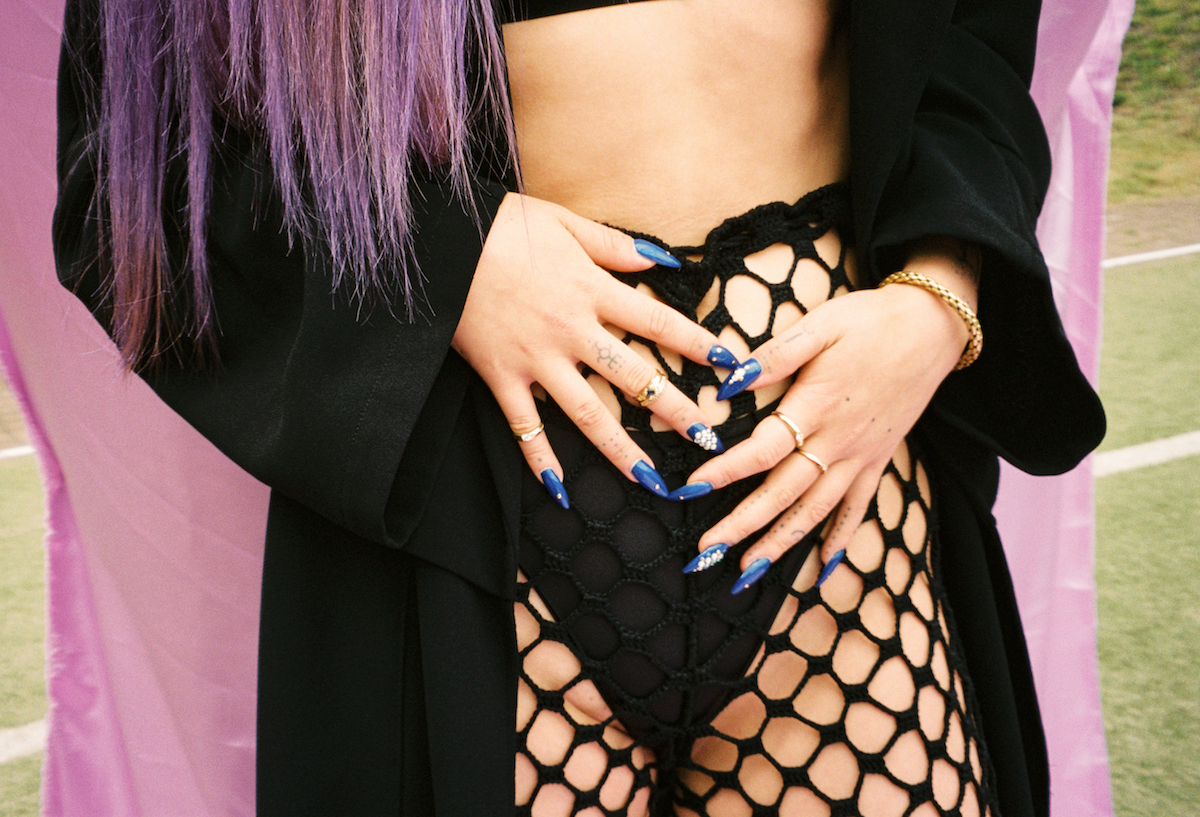
What would you say to those who claim it is wrong to be proud of your race?
Nomin: The question is more, what do you mean by race to begin with? As race is solely a construct. If you mean “race” in terms of cultural and ethnic identity, I believe it is beautiful to have pride in your cultural and ethnic identity – and high time for POC to reclaim this pride – especially for communities that have been systematically oppressed and stripped of a sense of embracing identity.
Conversations about race are arguably extremely important. However it seems that there is little willingness for the white majority to have honest and constructive conversations as most of these conversations (when they even happen) place whites at the center of attention, victimise the white majority and and focus on their feelings above all else. Would you agree with this statement and in what direction do you wish conversations about race and racism would go?
Nomin: 100% agreed.
First of all, it is close to impossible to have a dialogue with a person that does not acknowledge the mere existence of these issues, so for reasons of self-care and protection I would not actively seek such a dialogue, because there is only so much White Fragility I can tolerate. This also goes back to my issues with the invisible contracts of emotional labour WOC never willingly signed up for. But at the same time, I believe that it is extremely important re-shape current attitudes about race, so these conversations can actually take place with both parties being able to speak the same language so to speak. Still, as much as we need to have these dialogues, we also need to value our own souls protect ourselves from the damage, pain, and frustration some of these “conversations” – or in some cases, monologues – can lead to.
We need to be loving to ourselves first and foremost, as well as with the people who are actually trying to listen to our voices and have our voices heard.
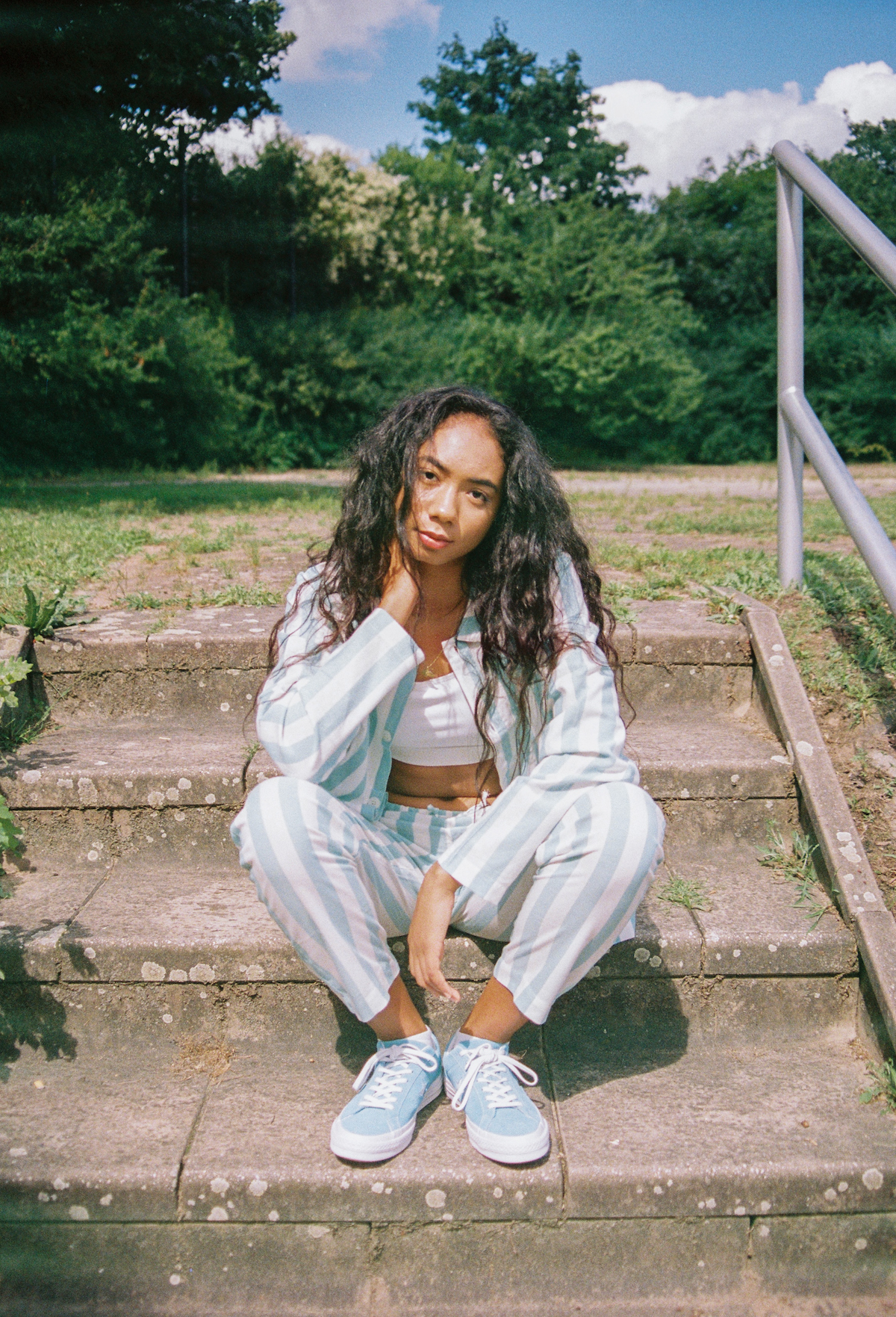
Jade:
My name is Jade Williams and I am 20 years old. I was born and raised in Brooklyn, New York. However, I moved to Berlin about a year ago, and have been residing here ever since. I am a full-time university student completing my bachelor degree in ethics & politics (in other words Political Science), and I hope to pursue my masters in postcolonial studies in the following year. Although I typically only identify as an Afro-Caribbean (Trinidadian) to avoid silly questions or presumptions, I am also Japanese.
What is your general impression of Berlin so far? How does your experience as a woman of color differ in Berlin from New York? Do you feel people focus on your identity from a national perspective more than a racial perspective now that you are outside of the country in which you grew up?
Jade: As a recent ex-pat, my general impression of Berlin is a place where I feel great efforts are made to make people feel inclusive (especially those and perhaps mostly those from/who identify with the LGBTQ+ community), or attempts to make it a place of refuge for those who may feel that they aren’t accepted at home, or may need a space (a city) where there aren’t the typical demands of a robust city like NYC (where I come from).
Not that Berlin in itself is a place of lazy or unambitious people, but I think most can agree people live life leisurely here (which is something I wasn’t used to a year ago, but am trying to appreciate more and more now). As a Black WOC in Berlin, I feel quite alone at times, which is something I haven’t experienced in a while considering I was surrounded by diversity from living in NYC alone. But this is also perhaps due to the fact that I go to a PWI (predominantly white institution), and I haven’t made much of an effort to seek and connect with those who are Black WOC. I most definitely feel that people focus more on my nationality than my race, which is also very different for me because it is enough for me to be Black and American, but in America it’s never enough for me to be Black because I’m typically seen as “foreign”.
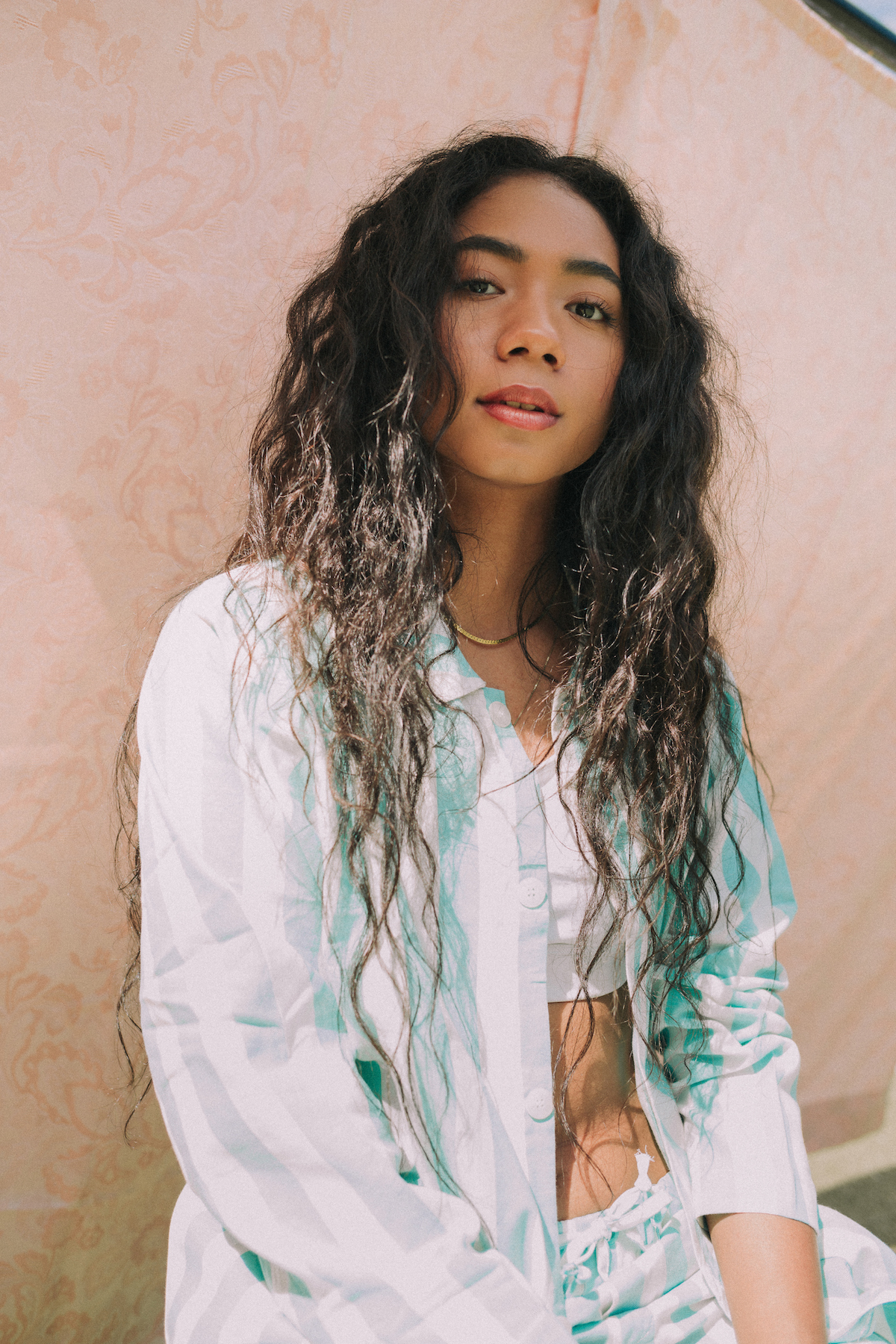
The US is facing a lot of heavy shit at the moment concerning how people of different races and ethnicities interact with each other as well as how power structures affect different races and ethnicities. How does it feel to be a WOC who has been living in Europe as racially-charged “events” unfold on American soil?
Jade: I feel disconnected, isolated, and unproductive. Typically, I could participate in conversations arising from these events with my sister, my father, and my mother (as well as my extended family, friends, colleagues, peers, the list goes on). These individuals are all POC who have different stances on these issues (while still sharing similar fundamental attitudes), who have helped me navigate these conversations through their diverse perspectives. Now that these people are no longer a room away but a limited scheduled phone call away, I feel even more remote from it. Moreover, I am at times scared to share my thoughts on [race relations in America] because although I do not need someone to agree with me ALL the time, I doubt anyone who hasn’t grown up within an American context will share the same views or feel they would be indifferent.
You mention that you typically only identify as Afro-Caribbean (Trinidadian) to avoid silly questions or presumptions, but are also Japanese. Does this have to do with the kind of stereotypes and assumptions people have when it comes to people of Asian descent, specifically Japanese? And if this is the case, do you feel that the way you identify is less a personal choice and more one society has placed upon you through your experience with strangers based upon your mixed-race heritage?
Jade: It’s funny you ask this because I wrote my college application essay on this! Long story short, I was around 14 at an airport waiting to board the plane with my mom and sister, and this middle aged white man had asked me what business I had in Tokyo. I told him I was visiting my grandparents for the summer and he immediately started with the BS! Throughout the entire conversation he managed to negate ANY part of me that was Afro-Caribbean by only talking about the inherent positive attributes of the Japanese and how I (apparently) affirmed them (i.e. Japanese are polite, elegant, generous). At this age, from this simple conversation that I probably would have felt gassed (/flattered) by a few years ago, I recognised how language plays a huge role in solidifying stereotypes. This man glorified me for being Japanese whilst simultaneously negating me being Trinidadian. A more simple/general example is when people claim my good grades in math make sense because I am Asian, and the fact that I was a relatively fast runner is because I am Black. Being Asian (specifically Japanese) does not hold a monopoly for my somewhat “good” or “desired” traits!
So to answer the final question, it is a personal choice I make due to societal reasons. I also feel like it’s necessary for people to understand how hurtful, irrational, false, and problematic these assumptions are in and of themselves without me having to explicitly say it. I think we’re smart enough to realise these assumptions through these small mistakes, but these small mistakes can mean a whole lot to the people who these presumptions are made about.
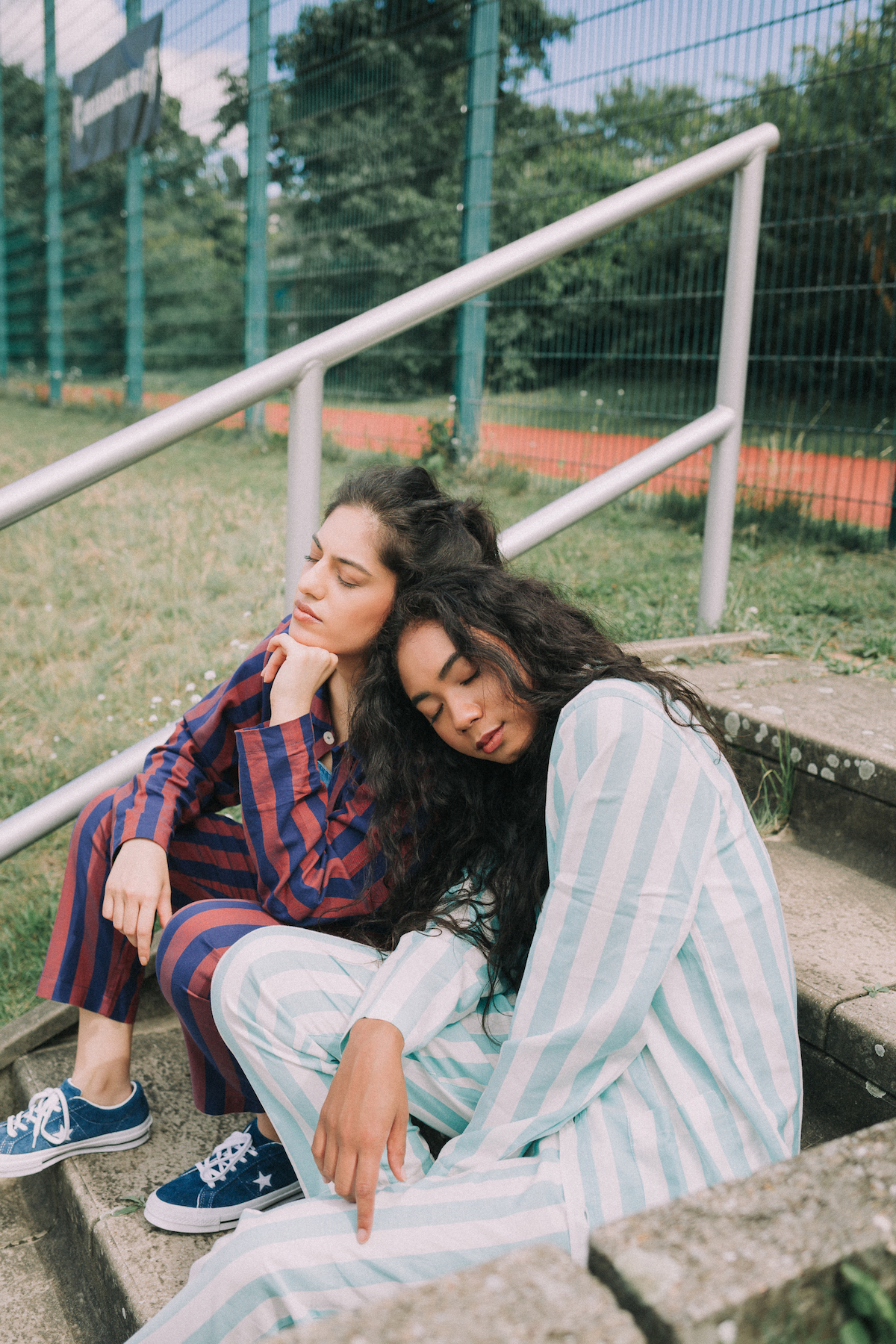
As a woman of color, being both proud of who you are and identifying with your ethnicity often becomes the only identifying modifier by which the white majority see women of color. Oftentimes pride in oneself and one’s heritage is interpreted by the white majority as confirmation that women of color are asking to be first and foremost identified as women of color 100% of the time every time. Women of color are also often expected to speak for and represent our entire race – something the white majority does not encounter. Would you agree with this?
Jade: Haha, you basically just asked me how I feel about #AllLivesMatter, White Feminism, and being the only Black girl in class that everybody turns to when people learn for the first time that 90% of slaves were transported through the Caribbean/South America. It is upsetting, but of course nothing new. To talk out and back on this can be exhausting, and I think a lot of WOC who do take it upon themselves to become a sort of spokesperson or leader forget to take care of themselves. I don’t consider myself to be either a spokesperson or leader but at times I take up the overwhelming task of talking on behalf of me and “my people”. Our pride in our ethnicities, history, and origins are feared. Thus, for a long we have been scared and hesitant about celebrating it. Although we are celebrating ourselves more than before, we have also come to the conclusion more than ever before that to take care of ourselves is to not only take a break from always trying to fight back, but to take a moment to stop and celebrate and love ourselves and to make sure others acknowledge it. We have just as much of an inherent right to do so and to be so celebratory of ourselves and those like us.
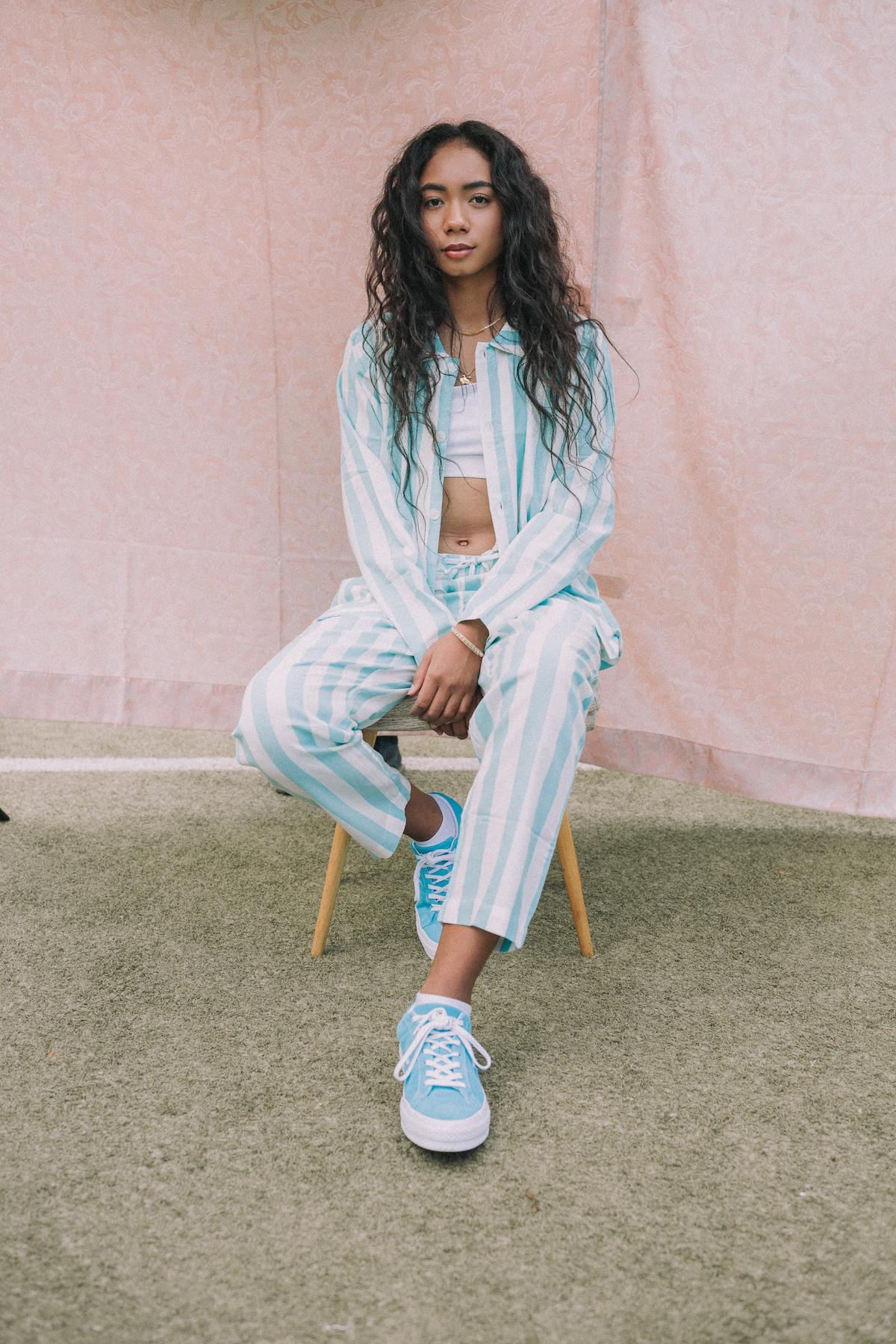
What would you say to those who claim it is wrong to be proud of your race?
Jade: Fuck you and own it! Yes, race is a social construct, but one that was made by those who had a problem with the “other”. To me, someone who takes the time to tell you not to be proud of it sounds like someone who knows there is much to be proud of in it but simply cannot be happy for you because they aren’t like you. Ha!
Do you feel like internalised racism is a symptom of systemic and institutionalised racism?
Jade: Most definitely. I could go crazy in depth but that would take days! I think from a historical context it may be easier to condense and explain. I few years ago I wrote my thesis on the correlation between post-colonised countries and the genocide that inevitably followed due to internal political conflict which manifested itself from the clear remains of their once colonised life. I compared the Perejil Massacre and the Rwandan Genocide. These were regions in which people turned against their own using similar prejudices that we use today (there is also a lot to be said about the parallels between historical conflicts and the ones we experience and witness in contemporary times). However, these prejudices did not simply develop from literally nothing, these prejudices were implemented by their previous colonisers in which they continued to circulate and implement into their new lives as an independent people and country. The cost of these prejudices was the lives of many. This thesis, is one that needs a lot to work and revision. However, it is one of my topics of interest that I hope to pursue into grad school!
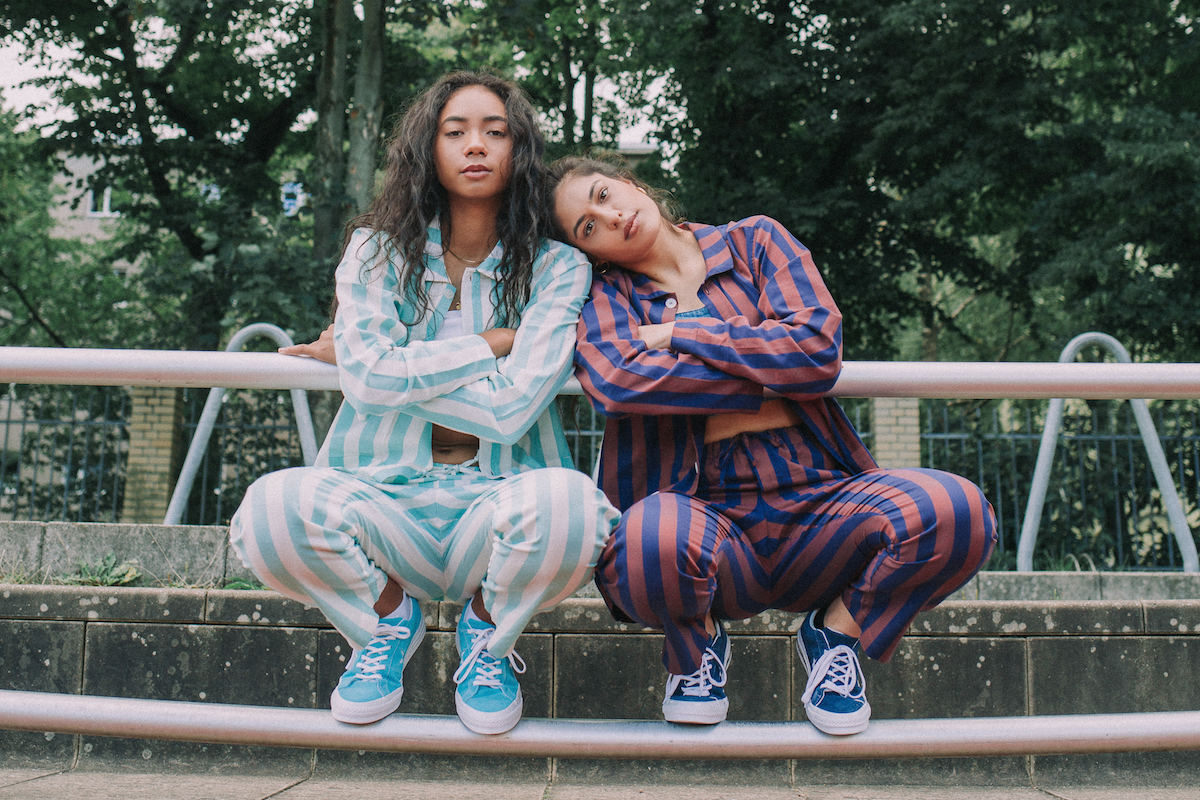
Conversations about race are arguably extremely important. However it seems that there is little willingness for the white majority to have honest and constructive conversations as most of these conversations (when they even happen) place whites at the center of attention, victimise the white majority and and focus on their feelings above all else. Would you agree with this statement and in what direction do you wish conversations about race and racism would go?
Jade: I agree. Which is why a productive way for these conversations to START is to first sit down and listen to POC. While POCs are also willing to listen, we’ve spent more time listening to the white majority talk about themselves and about us than we have talking about ourselves and about them. Isn’t it about time they share the platform? Of course, this brings up the concern that White women may feel threatened because it may appear to them that we are asking for WOC to come first and be first always. But this is just their interpretation charged with the fear of losing their privilege whilst not acknowledging it. Those from the white majority who want to have successful conversations about race need to they can put aside their own thoughts and be a diligent and respectful listener first. If they are able to do this, they will not only realise they were never being attacked, but also see POC have only been urging the white majority to see beyond their personally constructed borders and to broaden them in favour of an inclusive and respected environment.
_
Interview and photography by Rae Tilly. Styled by Olive Duran. Hair and Makeup by Gianluca Venerdini. Nomin wears a vintage jacket and top and trousers by Lahai International. Jade wears a set by Nufferton. For more articles on intersectional feminism and re-defining beauty, click here.



